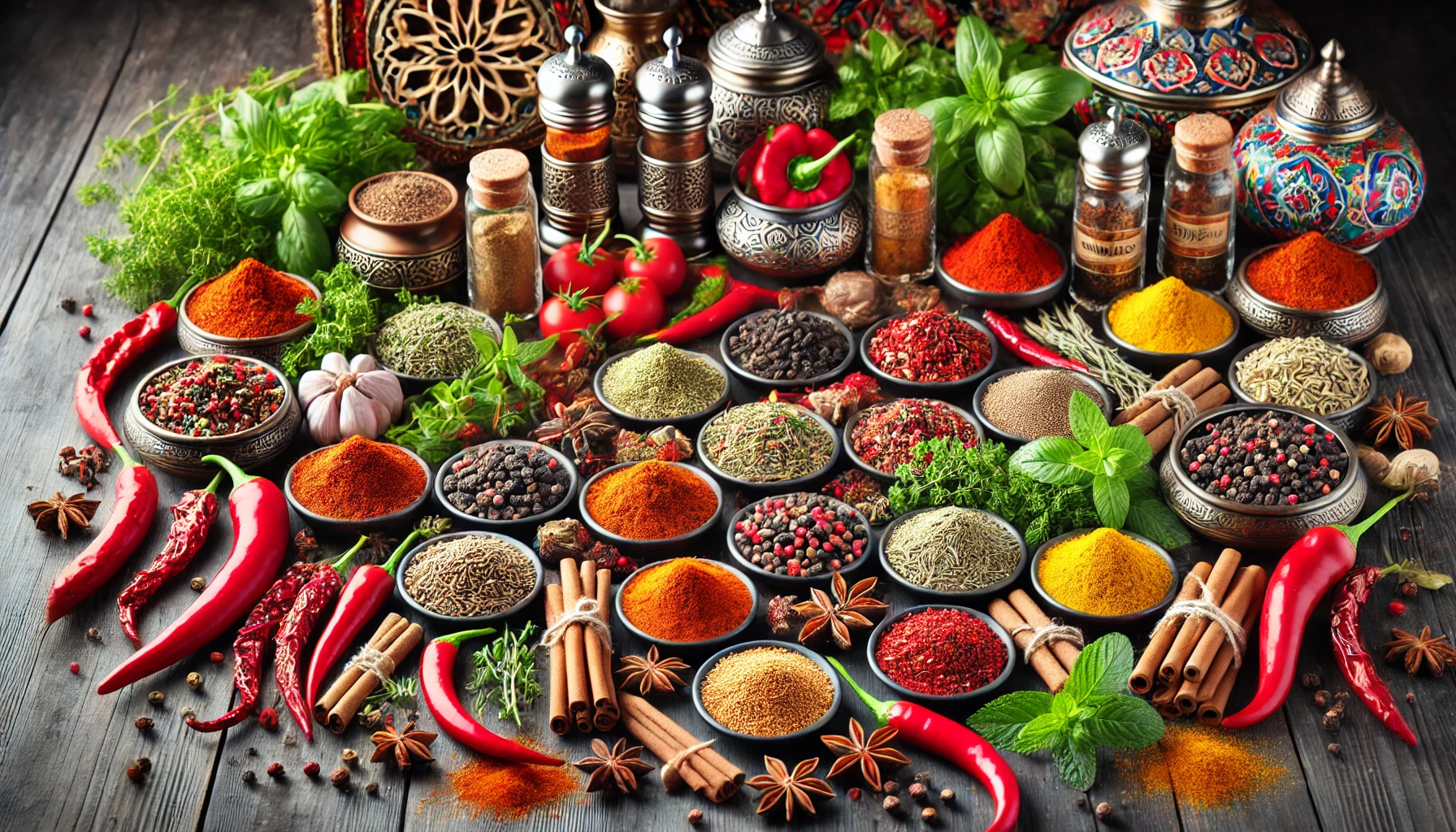The Flavorful World of Turkish Spices
The hub of thriving and diverse tastes for so many centuries, Turkish cuisine has diversified with the use of spices. Spices, which are obtained from many plants, seeds, and tree nuts, are the components that give dishes their final touch.
Essential Spices in Turkish Cuisine
Şanlıurfa’s Chipotle Chilies
Şanlıurfa’s famous chipotle chilies are known for their bitterness and smoky flavor. These chilies add depth and heat to a variety of dishes, from stews to kebabs.
Black Pepper and Red Pepper
Black pepper and red pepper, either powdered or crushed, are staples in Turkish kitchens. Black pepper adds a mild heat and depth of flavor, while red pepper (both sweet and hot varieties) provides a vibrant color and a range of spiciness to dishes.
Thyme and Mint
Thyme and mint, collected from the foothills of mountains, are widely used in Turkish cuisine. Thyme is often used in meat dishes, marinades, and soups, while mint adds a refreshing flavor to salads, yogurt-based dishes, and beverages.
Fennel and Cinnamon
Fennel and cinnamon are sweet-scented spices that are essential in Turkish cooking. Fennel seeds are used in bread, pastries, and meat dishes, providing a mild anise flavor. Cinnamon is a versatile spice, adding warmth and sweetness to both savory and sweet dishes, such as pilafs and desserts.
Sumac
Sumac is the indispensable spice of mantı (Turkish dumplings) and many other dishes. This tangy and slightly lemony spice is made from dried and ground sumac berries and is often sprinkled on salads, meats, and dips to add a refreshing tartness.
Allspice and Ginger
Allspice and ginger are other key spices that enhance the flavor of Turkish dishes. Allspice, with its complex flavor reminiscent of cloves, cinnamon, and nutmeg, is used in meat dishes and desserts. Ginger adds a spicy, zesty flavor to a variety of recipes, from soups to sweets.
The Role of Spices in Turkish Cuisine
Spices play a crucial role in defining the character and enhancing the flavor of Turkish dishes. They are used not only to season food but also to create balance and harmony in flavors. The careful use of spices is a hallmark of Turkish cooking, ensuring that each dish is aromatic, flavorful, and satisfying.
Examples of Spiced Turkish Dishes
- Kebabs: Seasoned with a blend of black pepper, red pepper, thyme, and sumac, kebabs are a perfect example of how spices enhance the flavor of grilled meats.
- Pilafs: Often flavored with cinnamon, allspice, and fennel, Turkish pilafs are aromatic and richly flavored.
- Mezes: Appetizers like acılı ezme (spicy tomato dip) and şakşuka (fried eggplant with tomato sauce) are seasoned with a variety of spices, including black pepper, red pepper, and mint.
- Soups: Turkish soups, such as lentil soup (mercimek çorbası), are often spiced with cumin, black pepper, and red pepper, adding warmth and depth of flavor.
Conclusion
The diverse and flavorful world of Turkish spices is a testament to the rich culinary heritage of Turkey. From the smoky chipotle chilies of Şanlıurfa to the sweet-scented cinnamon and the tangy sumac, these spices are essential in creating the unique and vibrant flavors of Turkish cuisine. Whether used in meats, vegetables, soups, or desserts, spices are the final touch that elevates Turkish dishes to new heights of deliciousness.
Latest Update: May 22, 2015
Your Content Goes Here
A brief summary of the key points in this article.




